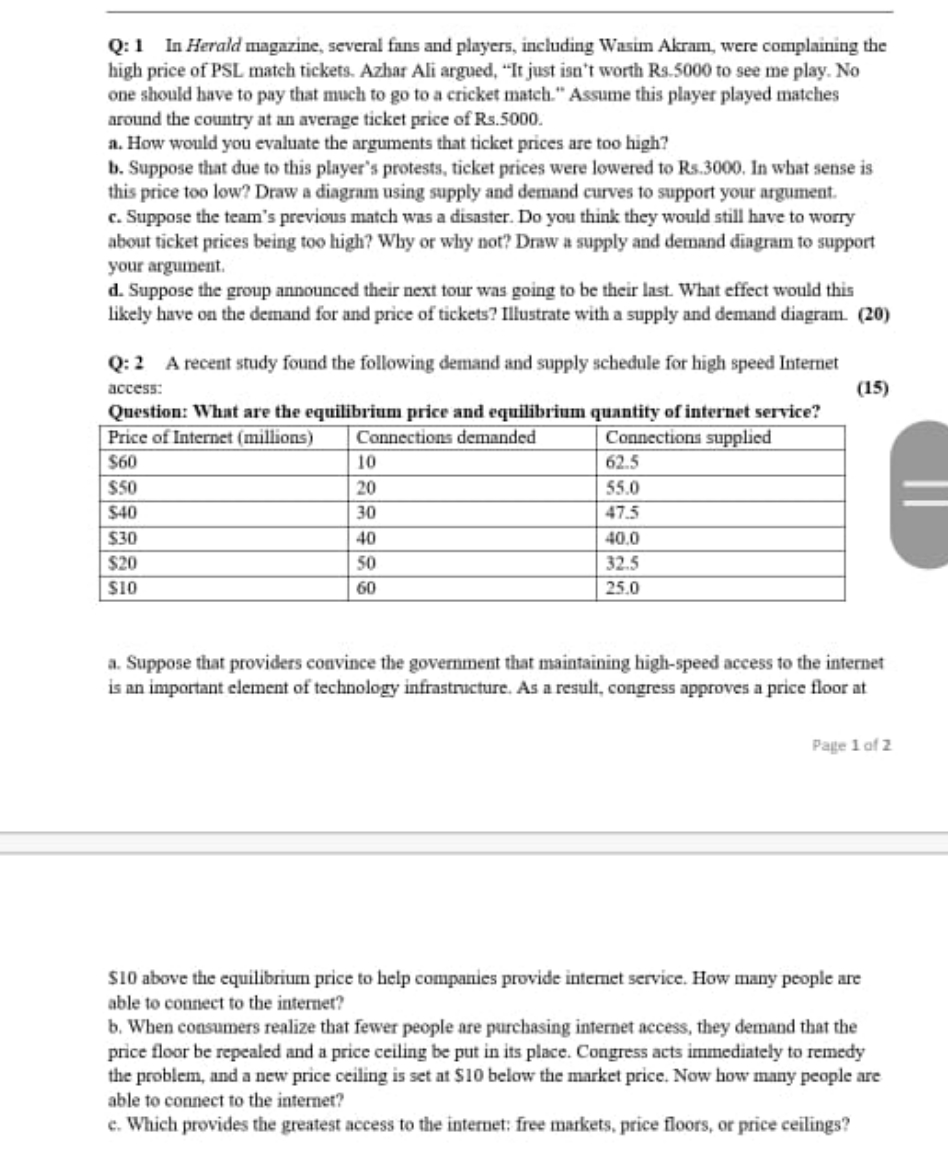fastly answer requests
Q: 1 In Herald magazine, several fans and players, including Wasim Akram, were complaining the high price of PSL match tickets. Azhar Ali argued, "It just isn't worth Rs.5000 to see me play. No one should have to pay that much to go to a cricket match." Assume this player played matches around the country at an average ticket price of Rs.5000. a. How would you evaluate the arguments that ticket prices are too high? b. Suppose that due to this player's protests, ticket prices were lowered to Rs.3000, In what sense is this price too low? Draw a diagram using supply and demand curves to support your argument c. Suppose the team's previous match was a disaster. Do you think they would still have to worry about ticket prices being too high? Why or why not? Draw a supply and demand diagram to support your argument. d. Suppose the group announced their next tour was going to be their last. What effect would this likely have on the demand for and price of tickets? Illustrate with a supply and demand diagram. (20) Q: 2 A recent study found the following demand and supply schedule for high speed Internet access: (15) Question: What are the equilibrium price and equilibrium quantity of internet service? Price of Internet (millions) Connections demanded Connections supplied $60 10 62.5 $50 20 $5.0 $40 30 47.5 $30 40 40.0 $20 50 32.5 $10 60 25.0 a. Suppose that providers convince the government that maintaining high-speed access to the internet is an important element of technology infrastructure. As a result, congress approves a price floor at Page 1 of 2 $10 above the equilibrium price to help companies provide internet service. How many people are able to connect to the internet? b. When consumers realize that fewer people are purchasing internet access, they demand that the price floor be repealed and a price ceiling be put in its place. Congress acts immediately to remedy the problem, and a new price ceiling is set at $10 below the market price. Now how many people are able to connect to the internet? c. Which provides the greatest access to the internet: free markets, price floors, or price ceilings







